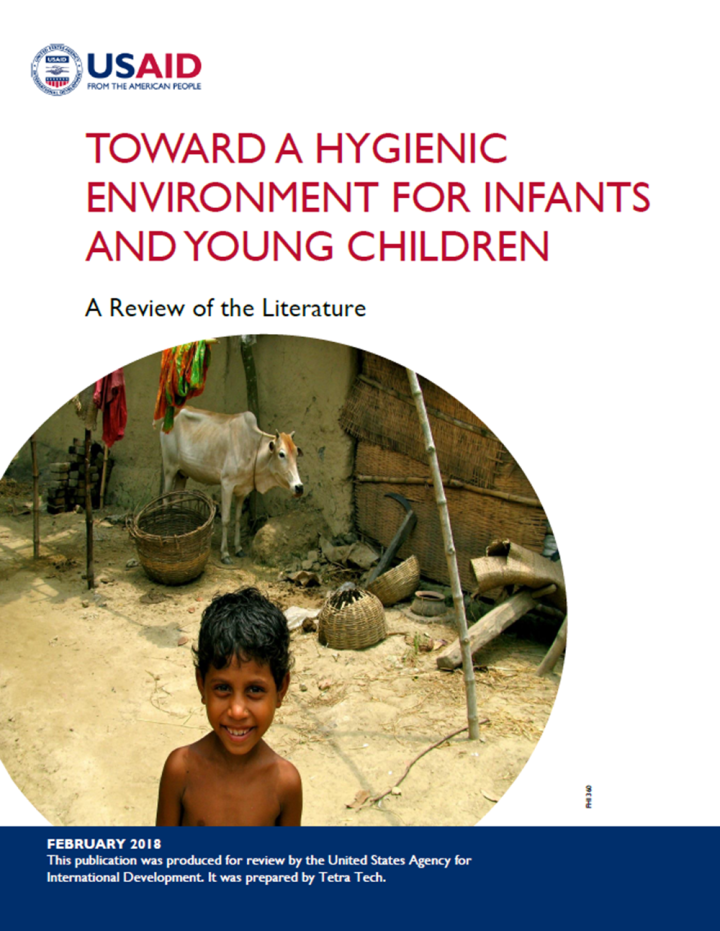Toward a hygienic environment for infants and young children - A Review of the Literature
USAID (2018)

Published in: 2018
Pages: 60
Publisher:
USAID
Author:
USAID
Uploaded by:
SuSanA Admin
399 Views
4 Downloads
The USAID Water, Sanitation, and Hygiene Partnerships and Learning for Sustainability (WASHPaLS) project conducted a review of the scientific and grey literature, complemented by dozens of key informant interviews with researchers and field implementers, to synthesize the latest understanding of key pathways of fecal microbe ingestion by infants and young children (IYC) and their links to diarrhea, EED, and poor nutrition and development outcomes.
Specifically, the review sought to:
• consider both human and animal sources of fecal contamination and the pathways presenting major exposure risks to IYC, including sources and pathways previously underemphasized (and to the extent possible, seek to understand the relative potential importance of the various pathways in terms of magnitude of pathogen transmission);
• examine technological and behavioral interventions to disrupt the transmission pathways (including established WASH measures) as well as interventions that address the underemphasized pathways, such as clean play spaces, animal husbandry, IYC feeding practices, and IYC-focused WASH behaviors; and,
• identify areas of priority for implementation research to address the issue of clean play spaces for infants and young children.
The findings of the literature review will inform the design of research to measure the additive effects of specific measures to reduce IYC exposure to fecal pathogens and other fecal microbes in their home environments when coupled with independent or integrated WASH and nutrition interventions.
Bibliographic information
USAID (2018). Toward a hygienic environment for infants and young children - A Review of the Literature. USAID
Filter tags
English














